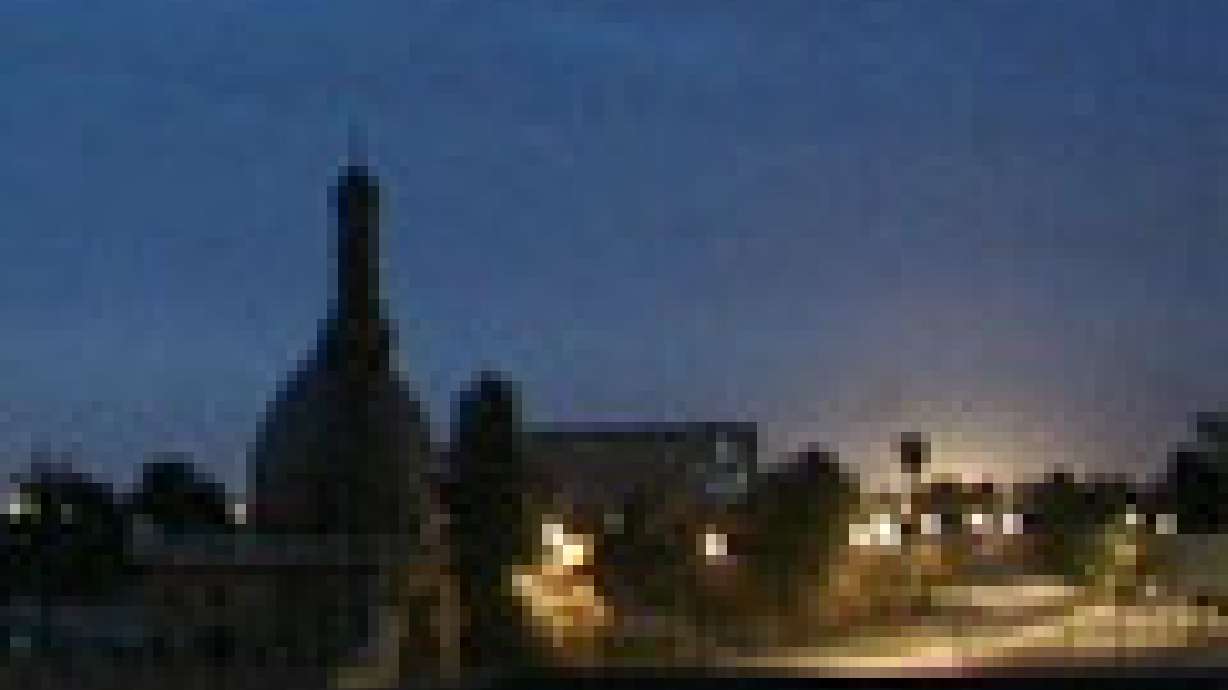Estimated read time: 5-6 minutes
This archived news story is available only for your personal, non-commercial use. Information in the story may be outdated or superseded by additional information. Reading or replaying the story in its archived form does not constitute a republication of the story.
BEIJING (AP) -- Condemnation and regret rippled across the world Thursday, from the governments of the world's most powerful nations to the streets of the smallest, as people awakened to a U.S.-led war against Iraq and said it wasn't necessary.
American allies backed the attacks as necessary to disarm Saddam Hussein.
Russia and China denounced the U.S. actions, and France and Germany lamented the strikes and warned of the potential for catastrophe. Dozens of other countries avoided direct denouncements but expressed regret that the problem could not be solved peacefully through the United Nations.
Outrage simmered in Islamic countries. And even on the streets of U.S.-allied nations, there were harsh words against Washington.
Tens of thousands of protesters marched on American embassies in world capitals.
More than 100,000 people, many of them high-school and university students, marched to the U.S. Embassy in Athens, Greece.
In Rome, police blocked anti-war demonstrators marching up Via Veneto toward the U.S. Embassy, while tens of thousands of students, workers and other Italians blocked highways and train tracks elsewhere.
Demonstrations were held in U.S.-aligned Australia and Japan as well as Muslim nations Bangladesh and Pakistan. Indonesia, the world's most populous Islamic nation, called on the United Nations to help end hostilities. Protesters burned U.S. flags in India.
Riot police clashed with demonstrators and safeguarded U.S. embassies in the Philippines and Egypt. More than 100,000 protesters rallied in Athens and tens of thousands demonstrated in Italy.
Russian President Vladimir Putin demanded a quick end to the attack, calling it a "big political mistake." In China, long opposed to any military action, the Foreign Ministry said the strike was "violating the norms of international behavior."
"This military action cannot be justified," Putin said in Moscow.
The governments of Britain and Japan, staunch U.S. allies, expressed immediate solidarity, with Japanese Prime Minister Junichiro Koizumi saying Iraq "has not acted sincerely." Leaders in Italy, Denmark, Poland and Albania also said they supported the United States.
"The war in Iraq is a reality that we expected," said Philippine President Gloria Macapagal Arroyo, a U.S. ally. "The Philippines is part of the coalition of the willing."
Germany expressed "great concern and consternation" that its anti-war diplomacy with France and Russia had failed; it immediately turned attention to the aftermath -- and offered help dealing with the humanitarian consequences.
"France regrets this action taken without approval of the United Nations," President Jacques Chirac said in a brief televised speech. "We hope these operations will be as rapid and least deadly as possible, and that they don't lead to a humanitarian catastrophe."
France, Germany and Russia lined up in recent weeks to oppose war in Iraq and threaten to veto any U.N. resolution that automatically authorized the use of force.
From the streets of Pakistan to the beaches of Barbados to the halls of Finland's government, the initial salvo of an American war against Iraq rippled across the planet in minutes, shaking up lives and setting legions on edge.
"There's nothing good about war," said Ngai Sik-wai, a restaurateur in Hong Kong, watching with some customers as President Bush announced the attacks. "What is America thinking?" said Hong Ji, a Muslim shopkeeper in Beijing. And from Alexei Barenov, 24, an interior designer in Moscow: "The Americans don't listen to anyone."
As citizens fueled by instantaneous information debated and questioned, governments lined up much as they have for months. Iran, Iraq's neighbor and longtime enemy, issued immediate condemnation, calling the U.S. action "unjustifiable and illegitimate." Neutral Finland weighed in, too, with President Tarja Halonen calling military force outside the U.N. Security Council "not acceptable."
"The ongoing war must not result in the marginalization of the United Nations," she said.
Across Muslim nations, outrage brewed. In Pakistan, already brimming with anger against America, one religious-political coalition called the attack "barbaric," and others demanded immediate intervention.
"It is open tyranny," said Mohammed Asghar, his hand trembling with anger as he prepared tea in his ramshackle stall. "Every Pakistani Muslim should go to help the Iraqi people."
In Afghanistan, so recently the subject of American military action, street talk ran squarely against Washington. "Today is a dark day for Muslims," said Sher Aga, 50, who teaches aviation at Kabul's Air Force Academy. "The United Nations is nothing anymore."
The legislature in Jammu-Kashmir, India's only Muslim majority state, adjourned Thursday in protest. "This is a war of self interest launched by the sole superpower," said the state's law and parliamentary affairs minister, Muzaffar Beig.
In the Palestinian areas, a group of 700, mostly schoolchildren, waved Iraqi flags and posters of Saddam Hussein and burned American flags. Demonstrators in the Gaza town of Beit Hanoun shouted: "We will sacrifice our soul and our blood for Saddam."
"American soldiers, whenever they step on Iraqi soil, they will be defeated," said Kamal Abou Ayta, an Egyptian political activist.
Security was tightened around the world, especially in embassy districts.
In Beijing, paramilitary officers checked the IDs of Chinese passing the Iraqi Embassy, and already-stringent procedures outside the American Embassy were tightened. In the Pakistani capital, soldiers with assault rifles hunkered down in sandbag bunkers outside embassies.
In Manila, where anti-war protesters clanged pots near the U.S. Embassy, Arroyo said the military and police were on a high state of alert and urged local communities to prevent "terrorist incursions."
Far from the chaos, in the sun-drenched islands of the Caribbean, leaders worried war would keep tourists away and crush economies. But on a white-sand beach in Barbados, Guthier Gilbert, 50, of Montreal wasn't concerned.
"If they declare war," he said, "I don't think it will affect my vacation."
(Copyright 2003 by The Associated Press. All Rights Reserved.)









